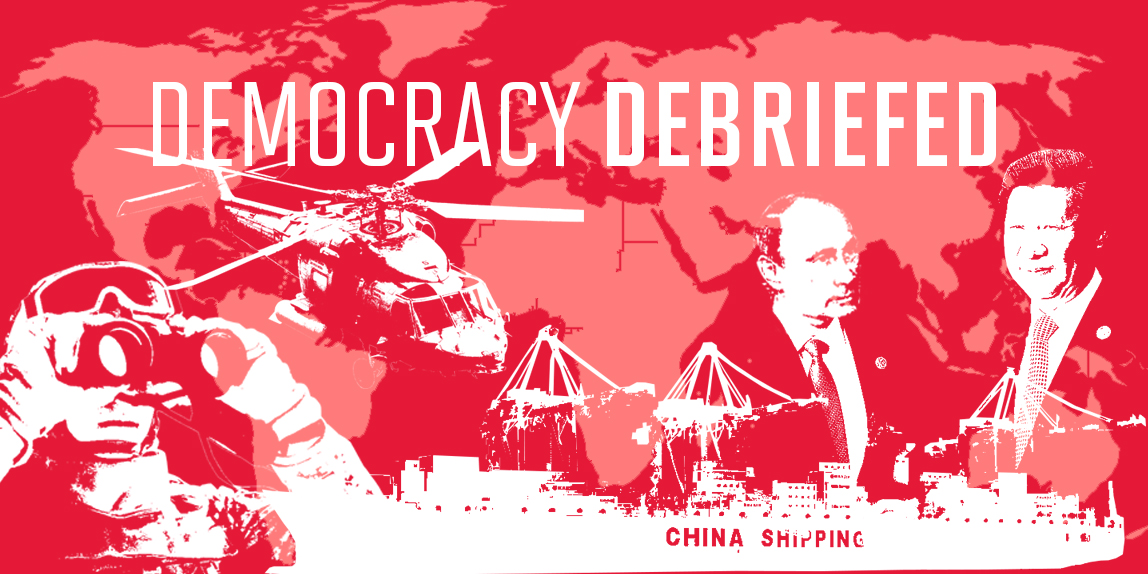Democracy Debriefed is a weekly interpretive column that explains complex foreign and domestic policy issues. The views expressed are the author’s own.
Last month, the Trump administration proposed cutting the State Department and Agency for International Development budgets by at least 37 percent. The details emerged as President Trump tries to fulfill his promise to substantially increase military spending while not tapping into entitlement programs such as Social Security and Medicaid. This means that funding will have to come from discretionary spending, and it looks like the president has international aid and diplomacy programs in his sights. While it may seem like a quick fix, slashing American soft power in favor of an expanded military highlights a problem in how the president’s cabinet views the importance of these programs.
Soft power is a concept whereby a country is able to persuade others to behave agreeably without using military force or other means of coercion. This persuasion utilizes programs through USAID, the State Department, and the Peace Corps, and larger extensions of U.S. civil society such as churches and universities. All these initiatives serve the greater purpose of teaching American culture and values to the next generation of leaders and citizens in other countries, encouraging them to be more receptive to U.S. foreign policy measures in which they will one day have a stake. Investing in soft power is especially important if, for example, you’re President Trump — a man who claims to have opposed the invasion of Iraq and called the war in Afghanistan a mistake.
The biggest benefit to soft power is that it often circumvents the need for large-scale military action as seen in the Middle East. The demobilization of FARC guerrillas in Colombia is a perfect example. In the late 1990s, Colombia was on the verge of becoming a failed state. Violence and corruption stemming from the illegal drug trade undermined the Colombian government’s control of the country, and a United Nations intervention was feared to be a possibility. Thankfully, a foreign assistance campaign led by the United States delivered to Colombia economic aid, military training and criminal justice reform. The relief package turned the tides of the drug war in the country and led to a Colombian state that is growing as a regional power and a loyal American ally. Even more convincingly, this successful initiative cost only $10 billion in U.S. aid since 2000. That’s a bargain compared to the costs of America’s botched wars in the Middle East, which are looking to top $4.8 trillion, according to a 2016 study by Brown University’s Watson Institute.
Thankfully, though, the cost of these wars isn’t lost on American generals. After the details of the Trump administration’s budget cuts were made public, more than 120 retired generals signed a letter urging Congress to take a more measured approach. They noted that the issue is that defense spending is not a replacement for adequate diplomacy. The letter recognized that radicalization occurs in the context of young people’s social environments, and that to quell unrest, the government must uphold both diplomacy and defense spending. Even more importantly, in some cases there isn’t a military solution to a foreign crisis.
Foreign aid often deals with issues that the Defense Department can’t adequately handle on its own. USAID’s response to the Ebola crisis in Africa and the tsunami in Japan may have had U.S. military support, but they lie outside the Defense Department’s mission parameters. Furthermore, foreign assistance campaigns devoted to disaster relief, outbreak control and government stabilization aren’t simply testaments to American generosity. These initiatives are a part of the global strategy that helps the United States outpace rivals in those regions. When the United States provides foreign assistance, it does so to further its own interests. It’s an investment that ensures the stability of the world so that trade can continue and our economies can grow in sync with our partners.
Other powers have already begun to pick up on a receding U.S. interest in the backwater parts of the world. China, for instance, has invested(16) in job creation and infrastructure construction in Africa, hoping to provide a more stable continent for its own business interests. Chinese President Xi Jinping has also expanded his country’s maritime presence in terms of port access and shipping vessels, and has begun construction of a “New Silk Road” stretching along the ancient highway from which it gets its name. This overland trade route is designed to help China access the massive market potential of Europe, while simultaneously fortifying Chinese diplomatic influence in the Eurasian and African countries that lie in between.
The Trump administration must be sure it understands the implications of decreasing American soft power abroad. We can’t force our way into foreign policy discussions through solely a large military presence, especially when that military presence is based on diplomatic ties reaped from foreign assistance programs. If the United States does not uphold diplomacy and defense as coequal policies, our global clout will dwindle and leave both irrelevant.
Kyle Rempfer is a sophomore government & politics and Russian major. He can be reached at krempfer@terpmail.umd.edu.



